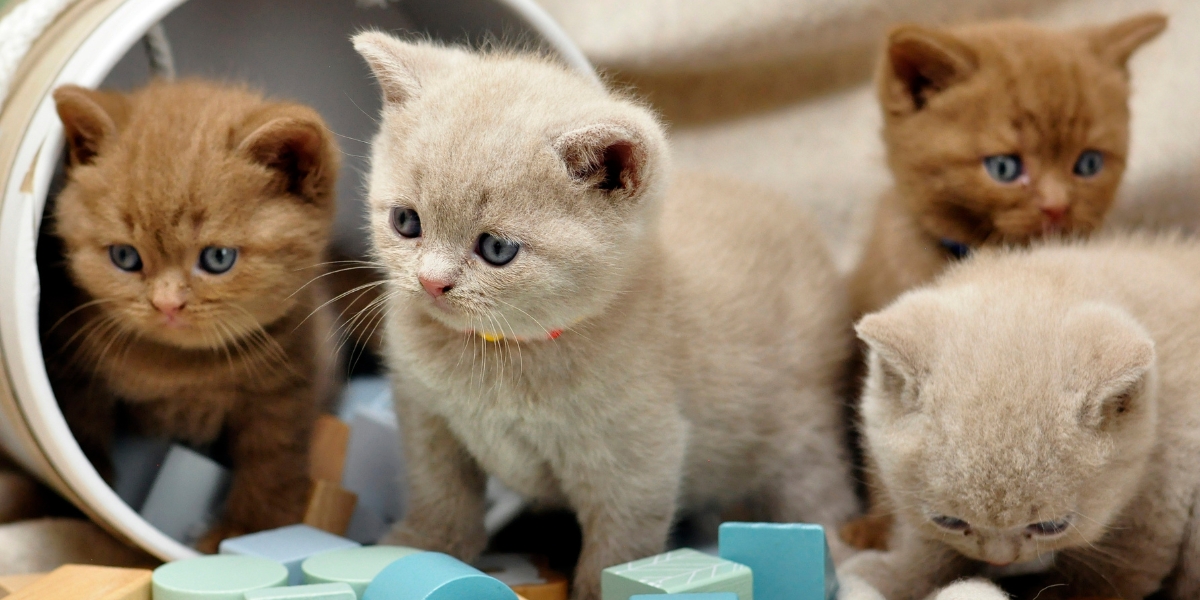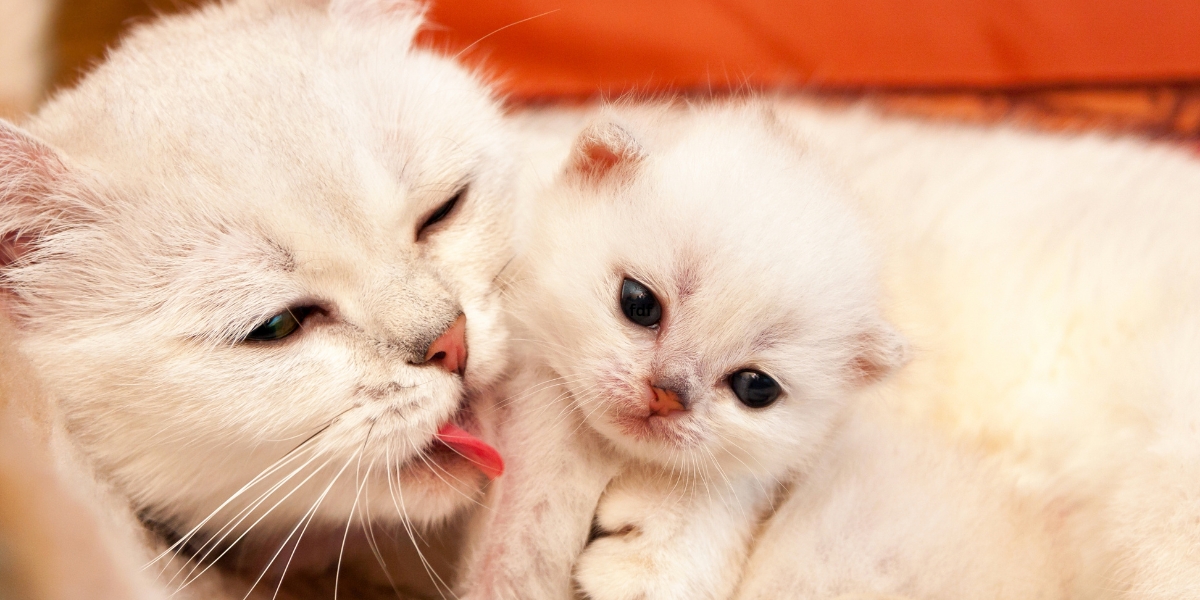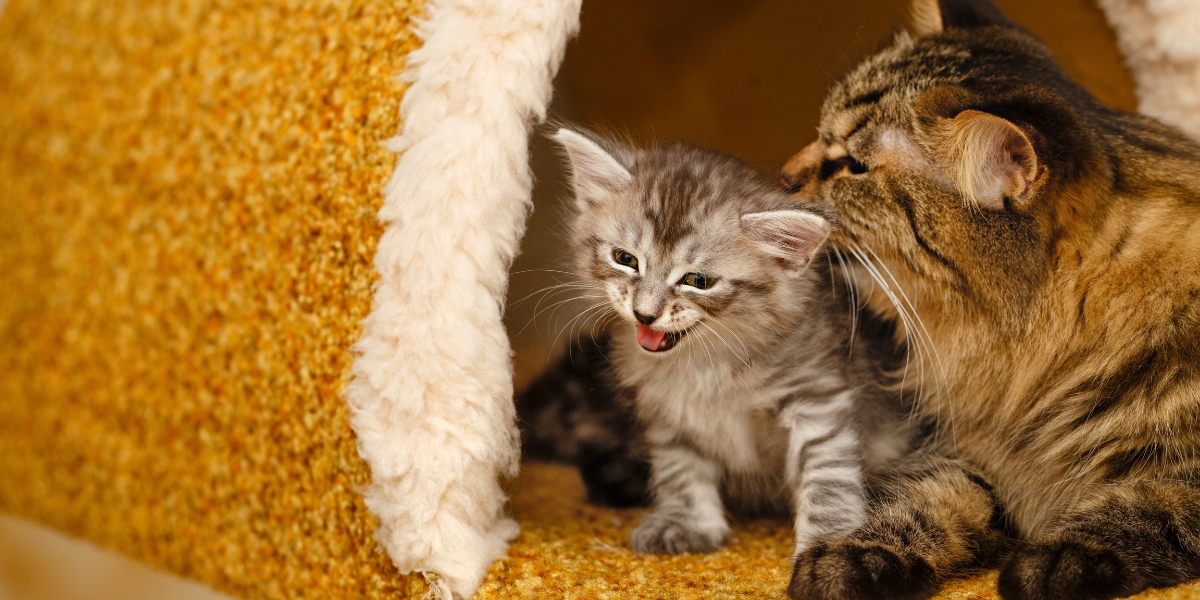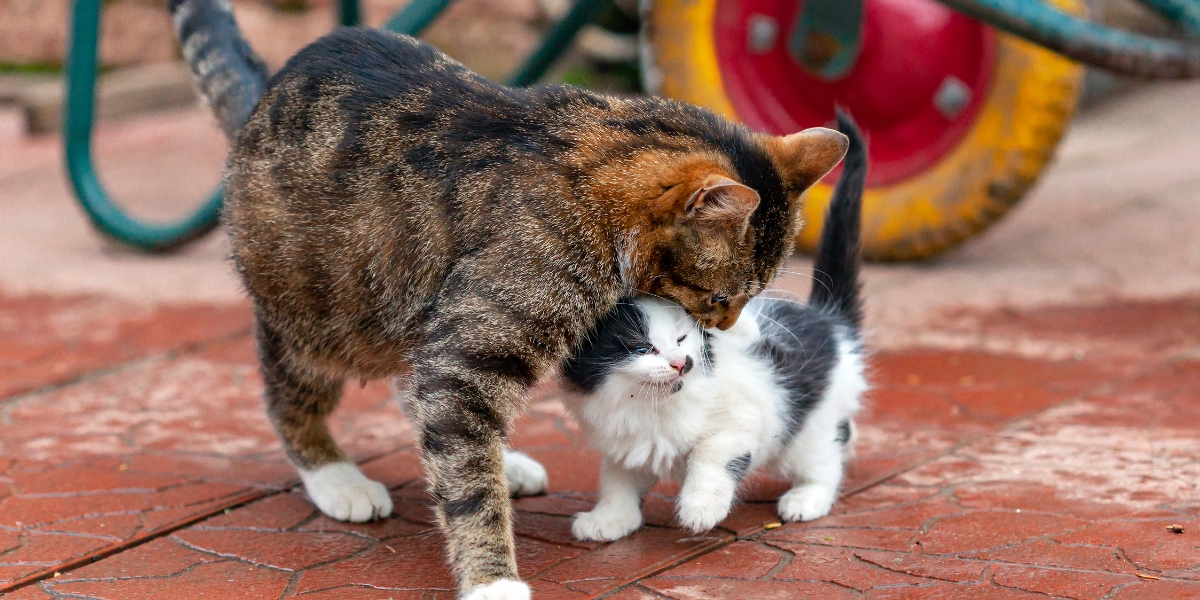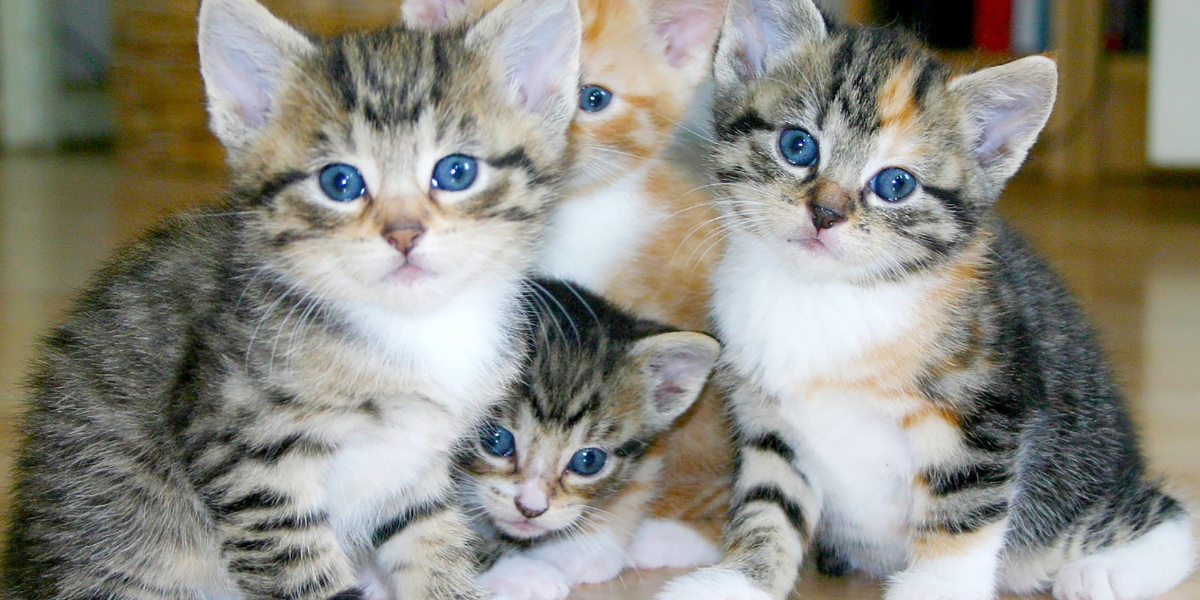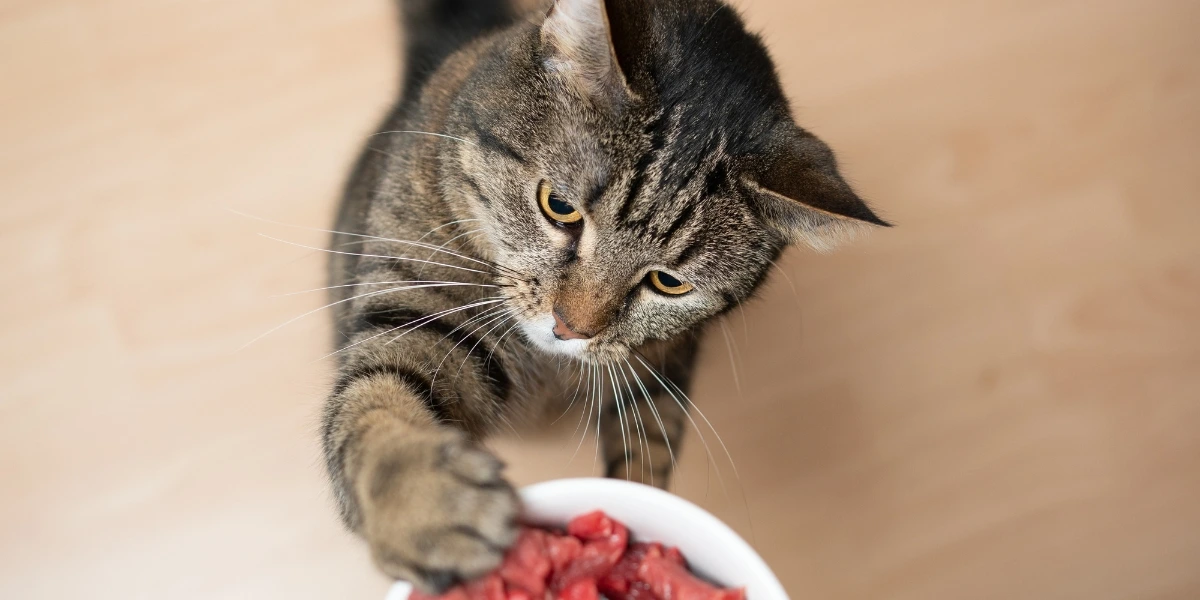As a first-time cat owner, deciding when to adopt kittens is an exciting journey, but timing is essential for their natural development. Kittens are usually fully weaned and ready for litter training by 8 weeks, but experienced cat owners often recommend waiting until 12 weeks for proper socialisation and behavioral progress. During this time, they learn from their mum and siblings, building critical interaction skills and boundaries that are important for their future.
Experts like Renee Rucinsky, DVM, who runs the Mid-Atlantic Cat Hospital and Feline Thyroid Center, emphasize the need to respect a kitten’s natural readiness stage. Early separation can disrupt their vital development process, making their nurturing environment and guidance from their mum and siblings crucial.
From their tiny mews and waddly walks, these wee kittens begin to explore the world. While it might be tempting to collect them at 8 weeks, waiting longer ensures they’re fully prepared to leave their mom and thrive in their new home.
For a first-time cat owner, this article provides a thorough and empathetic guide.
When Can a Kitten Leave Their Mother?
Kittens need time to bond with their littermates and Momma Cat, who is often referred to by breeders as the queen, a title that feels absolutely appropriate for her nurturing role. According to Rucinsky, while some siblings can be adopted together as early as 7 weeks old, it is better to wait. In an ideal setting, the whole family would remain together for at least nine weeks to ensure the kittens’ development is normal or sufficient.
Between eight to 10 weeks, kittens continue learning critical skills from their Momma Cat and their littermates.
By 7 weeks old, kittens have already gone through lightning-fast development.
- At birth, their ears are folded onto their head, but they start to spring up after about one week.
- Born blind, they’ll open their eyes within two weeks and should be crawling around this time, too.
- Kittens start developing itty-bitty teeth at 3 weeks old and begin taking cautious upright steps.
- Momma Cat uses her tongue to teach them how to self-groom when they’re 4–6 weeks old and they’re eager to play, pounce, and generally be more spunky and kitten-like now.
- Six to eight weeks, kittens stop nursing as their baby teeth are in place and they’re ready for solid food.
Rucinsky adds that when kittens leave the litter too soon or if they’re solo babies, they don’t build essential social skills and miss out on normal behavior cues that they would otherwise learn from being with the whole group. This early socialization is important for their development and well-being.
Kittens often inherit personality traits from their father (tom), while they learn everything else from their mother, including accepting food, bathroom habits and fear response to humans and other animals.
According to the American Animal Hospital Association (AAHA) and the American Association of Feline Practitioners (AAFP), life stage guidelines help guide their development during this period.
How to know it’s too soon to take a kitten away?
Here are four signs a kitten was taken away too early:
1. The kitten is illness prone
Newborn felines rely heavily on their mother cat for nutrients from mom’s milk during their first eight weeks. This period allows them to naturally wean, ensuring they grow strong and healthy. If babies are taken away too soon, they may face trouble developing, leaving them prone to falling sick or experiencing stunted growth. Milk from their mother is essential to avoid such issues and supports proper progress without stunting their health.
2. The kitten is aggressive
Just like human babies, kittens depend on their mothers not only for nutritional purposes but also to learn how to behave. When a baby cat leaves its mother before eight weeks, it misses essential lessons on how to act properly with humans, cats, and others in the household. These felines can become stressed and may play rough or act aggressively, developing behaviors that make them prone to conflict with those around them.
3. The kitten is shy and fearful
It’s uncommon for little felines to be naturally shy or fearful, but if kittens are taken away from their mothers too soon, they may miss their sensitive socialization period, which starts around 2–3 weeks old and lasts until about 9–10 weeks old. During this time, kittens begin experiencing new things, like meeting people and other animals, and learning how to behave confidently in different settings. If they haven’t had time to pick up important social cues, they may struggle in social situations later.
To help these babies grow into confident, affectionate cats, they should stay with their mother for the full eight weeks and have regular interactions with humans until they reach 10–12 weeks old. Following proper guidelines during this time ensures kittens learn skills to interact comfortably with different people and environments. While a shy kitten may still cause worry, it’s possible to help them relax with patience and gentle care.
4. The kitten struggles to adjust
When a kitten leaves its mother too soon, it may struggle to adjust to everyday life in a new environment. The developmental period between 4–7 weeks old is crucial for teaching tiny fur friends essential skills. During this time, Mama Cat teaches them to properly use the litter tray, manage social interactions, and become well-mannered feline citizens. If they aren’t exposed to people or other experiences during this stage, they can face upsets like angry Mr. Whiskers moments and behavioral issues.
Without Momma Cat’s guidance, mishaps happen, and it becomes much harder for these kittens to grow into well-adjusted pets. As caregivers, we must step into the role of Mama Cat, helping our kittens adapt with time, patience and love. Teaching them how to navigate their new world is a challenge, but every effort is worth it for their long-term happiness and comfort.
Weaning Kittens
Weaning kittens from their momma cat is an essential phase of their growth. This process typically begins when they are approximately four to five weeks old. At this stage, their curious nature kicks in, and they start to explore what mom is eating. It’s normal for momma cats to gently push away their little scamps as they try to nurse, signaling it’s time for them to begin learning to eat solid food.
To make this transition smooth, you can offer tiny bits of specially formulated food. A mix of one-to-three ratio warm water with dry kibble or canned food works well. The consistency should resemble fine oatmeal mush so it’s easy for the kittens to manage.
Be patient as they may play with the food first, but rest assured, they’ll soon get the hang of it. Consult your veterinarian for advice on how to schedule feedings, which might initially be roughly four times daily.
It’s also important to create a feeding area away from mom’s food. This helps the kittens associate their meals with independence. While they may still nudge mom between naps, this is part of them absorbing essential behavioral skills for their next stage toward independence. Remember, kittens can’t leave their mom yet, as they’re still under her care and guidance.
The weaning process depends on how much mom tolerates her babies trying new foods and how they adjust to the gradually decreasing frequency and amount of nursing. This journey sets the foundation for their growth and eventual self-sufficiency.
What Happens If Kittens Are Weaned Too Early?
If kittens are weaned too early, it can lead to both physical and behavioral repercussions. During the critical four- to seven-week window, Momma Cat plays a vital role in teaching kittens essential parenting skills, socialization, and the ability to eat solid food. You can learn how to prepare nutritious food for them here.
Without this support, a surrogate cat or bottle feeding becomes necessary to ensure they develop properly. Cat behavior consultants emphasize the importance of this period for litter training, learning to interact, and building resilience.
When kittens miss this timeline, they may develop tendencies like nursing on fabric or other fluffy things, a minor issue called oral fixation that helps them feel soothed. Though mostly harmless, such behaviors highlight the impact of early separation.
Proper care during this critical window makes the transition easier as kitties venture into the world beyond 7 weeks old.
Can Kittens Stay With Their Moms Their Whole Lives?
Kittens can stay with their Momma Cat, but whether they should depends on their personalities and living arrangements. Rucinsky notes that as kittens grow up, some may naturally seek independence, while others may prefer to stay close.
In the wild, feral cats often live in groups where mom cats and kittens stay together, but in a home environment, neutered cats may adjust better to a different arrangement.
Just like when kids grow up and leave the nest, individual cats thrive best when their needs are met. While some mom cats and kittens enjoy being together long-term, others may feel more at ease when given space. Finding the best situation depends on observing their behavior and ensuring everyone’s comfort.
Conclusion:
Kittens should not be separated from their queen before eight weeks of age. At this age, they are still learning from mum and developing essential social skills. Kittens who are separated too soon may experience behavioral issues, such as juvenile behaviors retention, like kneading or suckling. These behaviors may persist if they are taken away from their queen too early or without proper litter mates for support.
If kittens are removed prematurely, their queen may try to comfort them by providing a cuddly toy or something else, but it’s not the same as being with their mother. Ensuring they stay with their queen for the full duration allows them to develop properly and minimizes the risk of behavioral issues later on.
You may also be interested in: Reasons behind cats eating their kittens


